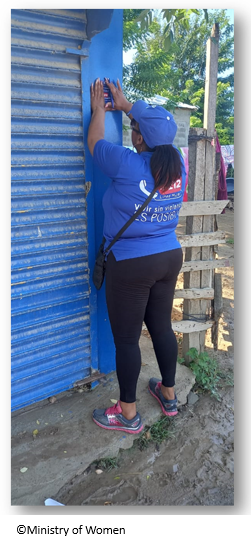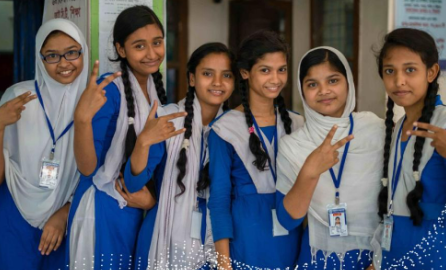‘An ounce of prevention is worth a pound of cure’ in the Dominican Republic

-
Gender marker: G2-Promotes gender equality as a primary objective
-
Period of implementation: 2020 - 2024
-
Amount: EUR 5,000,000
-
Geographical area: Americas and the Caribbean
-
Implementing partners:
-
National Ministry of Women
-
Ministry of Public Health
-
Ministry of Education
-
Attorney General of the Republic
-
National Police
-
-
Link to the project:
-
GAP III’s Areas:
-
Gender-Based Violence
-
Economic and social empowerment
-
Equal participation and leadership
-
Gender-based violence is multifactorial, and one of the greatest systemic challenges is to successfully build society-wide prevention mechanisms against it. After all, most public institutions respond after a crime has been committed and have far less capacity for prevention. Furthermore, women are often unaware that they are victims of violence and do not have clear means to safeguard their lives and integrity.
With this in mind, the C-PREV budget support programme in the Dominican Republic is the first in the country to address prevention in its entirety, effectively reducing gender-based violence (GBV) and inequality at the national level. It does this by improving the legal and institutional framework for GBV prevention and women's and girls' access to support services. With EU support, national ministries in the Dominican Republic are formulating a joint protocol with a clear definition of the roles of key public institutions in addressing these issues.
As a budget support programme focused on strengthening the national public system for the implementation of public policies on the prevention of gender-based violence, the main activities involve increasing their capabilities by providing technical assistance (particularly the creation and implementation of a monitoring and evaluation system) through the Ministry of Women to other government institutions. This enhances their compliance with comprehensive violence-reduction protocols, as well as increasing accountability. Civil society organisations are also involved in formulating and implementing campaigns to challenge social norms and promote awareness of gender inequalities and the prevention of gender violence.
As a result of these activities, expected results include:
-
A comprehensive strategy adapted to the specificities of risk and vulnerability will be adopted and its implementation initiated.
-
Adoption of a plan to improve an inter-institutional coordination mechanism, including joint coordination of protocols and statistics.
-
The Ministry of Women's Affairs and other relevant institutions will strengthen their response to gender-based violence.
-
An increased number of women are referred annually by local networks to the services they need, ultimately leading to a life free from violence.
Inter-institutional government coordination for the prevention of GBV has always been a challenge. This C-PREV institutional approach and joint protocol provide a transformative, comprehensive method to end violence. Analysis has focused on gender gaps, especially those related to the intersectional factors of access to justice and poverty and is key to assessing and demonstrating results.
“The Emergency Line (*212) in Montecristi, through which we receive complaints and rescue women at risk due to domestic and gender-based violence, has been of vital importance for this community, especially for women. It has allowed to report situations of gender-based violence and receive immediate support when required. We can confirm that the women from this community trust this service as complaints have increased after its launch, describing it as a true lifesaver. Likewise, the strengthening of the services we provide has been significant thanks to the technological equipment that has been acquired through the EU C-PREV budget support program for this office. It has optimized our capacity to manage the information regarding cases of gender-based violence and has streamlined communication with other entities involved in caring for victims. Moreover, the "Living without Violence is Possible" Campaign and the door-to-door events have been a legitimate driver of change in our province, raising the awareness of our community about gender-based violence and eliminating the stigma that surrounds this problem.” Carolina Ramírez, Head of the Montecristi Provincial Office of the Ministry of Women, Dominican Republic.
